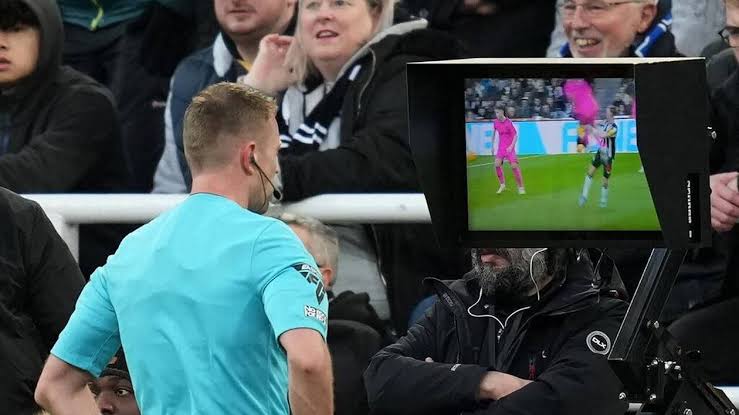Trials of a low-cost alternative to football’s video assistant referee are to be extended, with the pilot system allowing managers two challenges per game.
Rule maker International Football Association Board (IFAB) has been encouraged by results of early tests of the ‘football video support’ set-up at the Women’s Under-17 World Cup in October.
It is designed for use in competitions where matches are covered by up to four cameras, rather than the huge multi-camera systems used in the major leagues.
That would include matches in the English Football League and National League.
IFAB has yet to decide where the trials, set to be launched next season, will be extended.
Its technical director and former English top-flight official David Elleray said it was likely to be “a smaller country” or somewhere like “league three in Italy”.
Managers would be allowed to request a challenge, with the on-pitch referee then reviewing the incident in question on a pitchside monitor, with the material supplied by a video technician.
As with tennis and cricket, if a challenge is upheld, the manager would retain two challenges. If they lose, the challenge would be lost.
“With the best will in the world, VAR will only ever be affordable at the top levels in some countries – and in some other countries it won’t be affordable at all,” said Patrick Nelson, chief executive of the Irish Football Association.
“This system would be available for games that are only covered by maybe one, two, three or four cameras.
“That would include lots of leagues around the world and it goes three or four levels down a pyramid. It really democratises the idea of supporting referees to make better decisions.”
IFAB believes there is a twin benefit of the system as, in addition to the reduced cost, it also limits the number of officials required to use the system. This is especially important in areas that have a finite number of suitably qualified referees.
However, a hybrid system for the major leagues, with VAR used to determine decisions but a manager’s challenge also introduced, has been ruled out.
Elleray said: “There’s no reason to have challenges with VAR because the video match officials check every single incident.”
IFAB also believes authorisation for the challenges should rest with the manager or coach on the sideline rather than the players.
“You wouldn’t want the referee to be pressured every five seconds by a player saying ‘look at this, look at this, look at this’. So it’s down to the coach to make that choice of when to make a challenge,” added Elleray.
“We can all think of examples where you see a still picture somewhere from a single camera and say ‘maybe the referee hasn’t spotted that one – and that’s a clear offside’. Or ‘that isn’t offside and they’ve given offside’.”
BBC Sport



